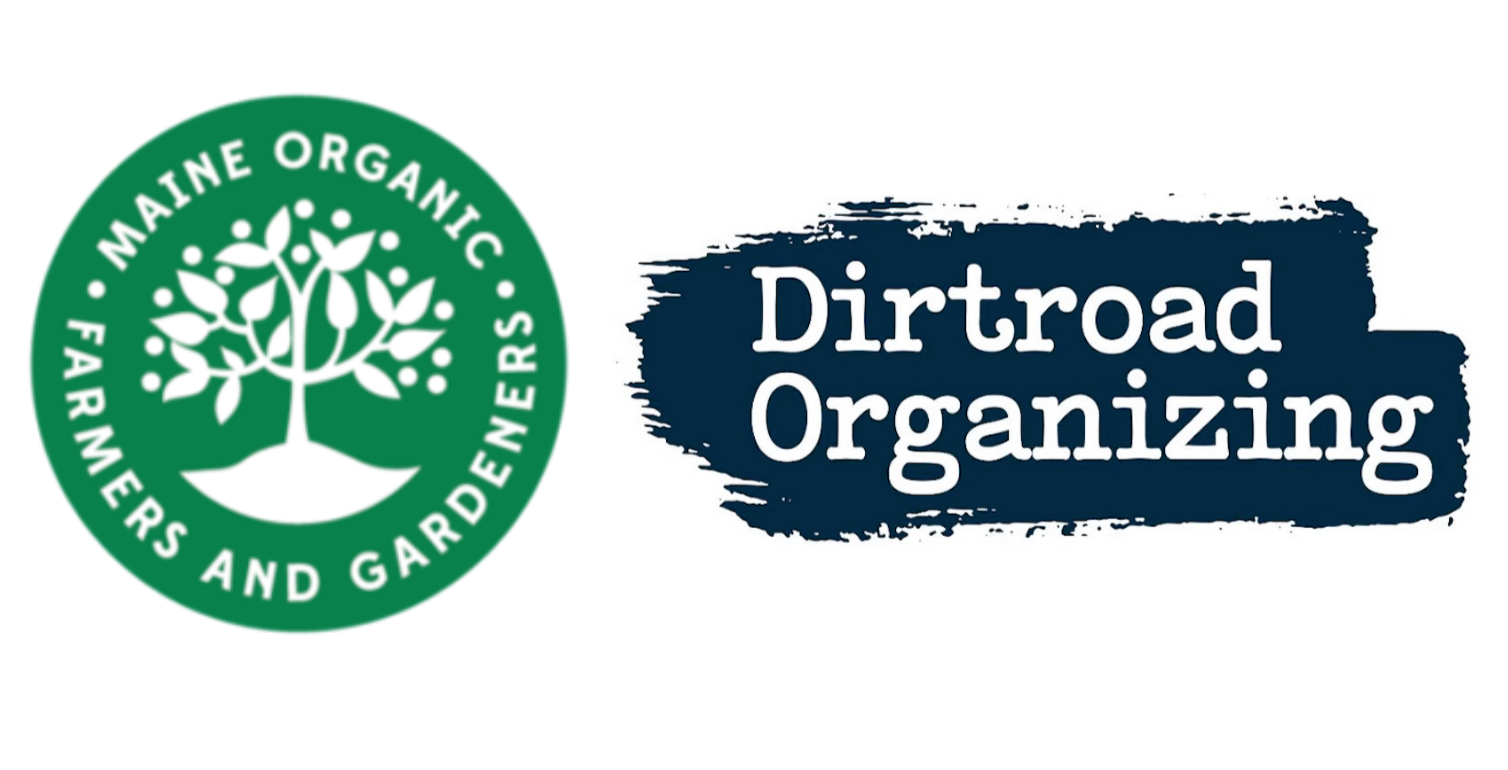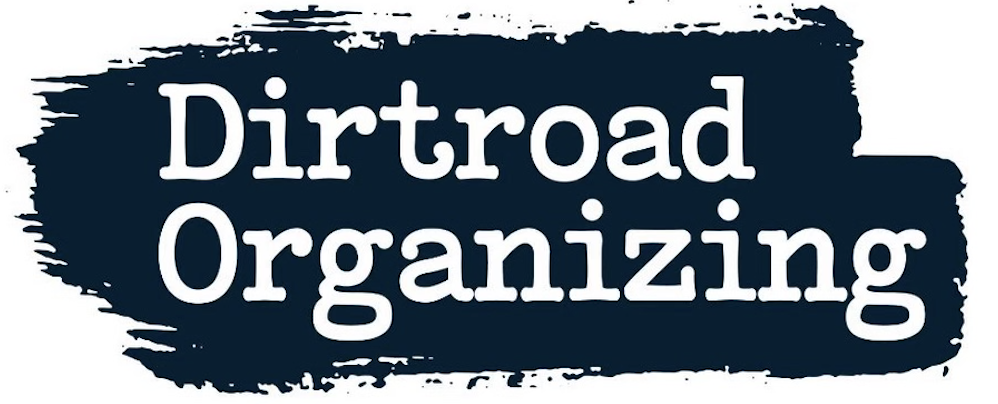
Dirtroad Organizing + Maine Organic Farmers and Gardeners Association
Climate Cohort
This program, a collaboration between Dirtroad Organizing and the Maine Organic Farmers and Gardeners Association, trains rural leaders to organize at the intersection of agriculture and the environment.
Rural folks from all 50 states are welcome to apply.
All participants will receive a $500 stipend once the training is completed and all requirements have been met.
Want to know more? Read below!
What dates do I need to know?
The deadline to apply is September 3rd, 2025 at 8pm ET.
The required times for the Climate Cohort are:
Virtual Orientation: Wednesday October 1st 7-7:45pm ET
Virtual Session 1: Saturday October 4th 3-5pm ET
Virtual Session 2: Saturday October 11th 3-5pm ET
Virtual Session 3: Saturday October 25th 3-5pm ET
What will the Cohort cover?
--All participants will receive a $500 stipend for participating in this training. Stipends will be received once the training is completed and all requirements have been met.
--Participants will be asked to tell stories about the impact of corporate agriculture and environmental degradation on their rural communities and/or stories of resilient agricultural communities.
--The content of the program will cover the intersectionality of rural agriculture, environmental degradation, messaging, storytelling, advocacy, and organizing.
Am I a good fit for this Cohort?
You are a great fit if you…
--are ready to dig into organizing, storytelling, and campaigning around rural agriculture and environmental impacts.
--want to connect with other rural leaders focused on environment and rural agriculture.
--seek skilled trainers on the intersectionality of rural agriculture, messaging, storytelling, and organizing.
--are committed to using this Cohort as a space to plan ongoing organizing in your community.
Why are Dirtroad and MOFGA running this Cohort?
So much of our rural way of life revolves around both our environment and agriculture. This partnership has allowed us to create a one-month intensive learning experience for rural leaders focused on this intersection. With skilled trainers by their sides, participants will dig into the complexities of how environmental health and rural agriculture are intertwined. They will also be telling their own stories of how their communities are being impacted and/or creating more resilient models.
What is the eligibility?
--LIVE AND WORK IN RURAL AMERICA: We ask that you be rooted in and committed to your rural community. This doesn't mean that you were born there or have lived there your whole life. It means that you care about your corner of the world and are ready for work hard for it.
--BE CURIOUS, KIND, and OPEN: This experience is really built around community, sharing experiences, and learning from others. Please come with an open heart and ready to engage in this experience with incredible people from across the country.
--IN IT FOR THE LONG HAUL: We know that rural work is difficult, and we may not win our first try. If you're part of this Cohort, we're in it for the long haul with you, and we ask that you're in it for the long haul with your community. We work to make our communities more vibrant and inclusive, regardless of outcomes, and we prioritize long-term organizing.
--FIGHT FOR EVERYONE: We are committed to building a world that is inclusive, just, and equitable. We take the time to listen to those who are different from us, and we fight for those whose voices have been historically shut out from political spaces.
What is the time commitment? What are the requirements?
The Cohort will run for the month of October with a total time commitment of about 10 hours.
The requirements are:
--One 45-minute orientation
--Three two-hour group training sessions
--At least one 30 minute one-on-one with staff/trainer
--Three homework assignments focused on storytelling.
Homework #1, due October 4, will be a narrative story about your community, how it's being impacted by environmental degradation, and how you're organizing around rural agriculture.
Homework #2, due October 11, will be an audio, video, or photo story-telling of environment and rural agriculture in your community.
Homework #3, due October 25, will be to create a plan for a community effort, event, campaign, or other activity that you're organizing.
